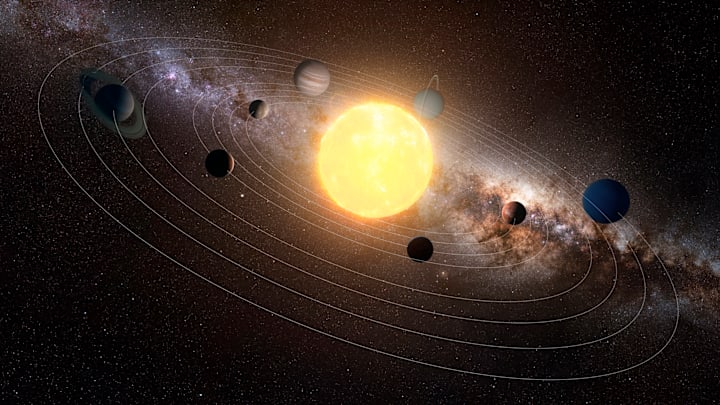The length of a day is such an integral part of life here on Earth that it’s hard to even understand what time would mean without it. What would we consider a good night’s sleep if a day only lasted 10 hours, instead of 24? Or what if one day lasted thousands of hours: How would our routine change to accommodate such dramatically long periods of light and darkness? The same goes for the length of a year. What would “seasons” even be if it only took Earth 88 days to orbit the sun? What would our calendar look like?
These kinds of questions are fun to ponder as you consider the various lengths of days and years for all the other planets in our solar system. To be clear: A day is how long it takes a planet to complete one full rotation on its axis, while a year is how long it takes for the planet to orbit the sun.
You might be surprised to find out just how vastly different the other planets’ ratios of day length to year length are when compared to Earth’s. In other words, not every planet spins on its axis at a much faster rate than it spins around the sun. On Venus, for example, a day is actually longer than a year: It takes our neighbor 243 Earth days to finish one axis rotation, but only about 225 Earth days to finish one entire orbit around the sun. A day on Neptune, meanwhile, is shorter than an Earth day by a good 8 hours—but it only completes an orbit about once every 165 Earth years.
Explore the rest of the stats below. (The decimals have been rounded, and Earth days and years do vary a bit over time, so consider the numbers approximate.)
1. Mercury
- Day length = 58.67 Earth days (1408 hours)
- Year length = 88 Earth days (0.2 Earth years)
2. Venus
- Day length = 243 Earth days (5832 hours)
- Year length = About 225 Earth days (0.6 Earth years)
3. Mars
- Day length = 1.04 Earth days (about 25 hours)
- Year length = 687 Earth days (1.9 Earth years)
4. Jupiter
- Day length = 0.42 Earth days (10 hours)
- Year length = 4333 Earth days (11.9 Earth years)
5. Saturn
- Day length = 0.46 Earth days (about 11 hours)
- Year length = 10,756 Earth days (29.4 Earth years)
6. Uranus
- Day length = 0.71 Earth days (about 17 hours)
- Year length = 30,687 Earth days (about 84 Earth years)
7. Neptune
- Day length = 0.67 Earth days (16 hours)
- Year length = 60,190 Earth days (165 Earth years)
Honorable Mention: Pluto
- Day length = about 6 Earth days (153 hours)
- Year length = 90,520 Earth days (248 Earth years)
